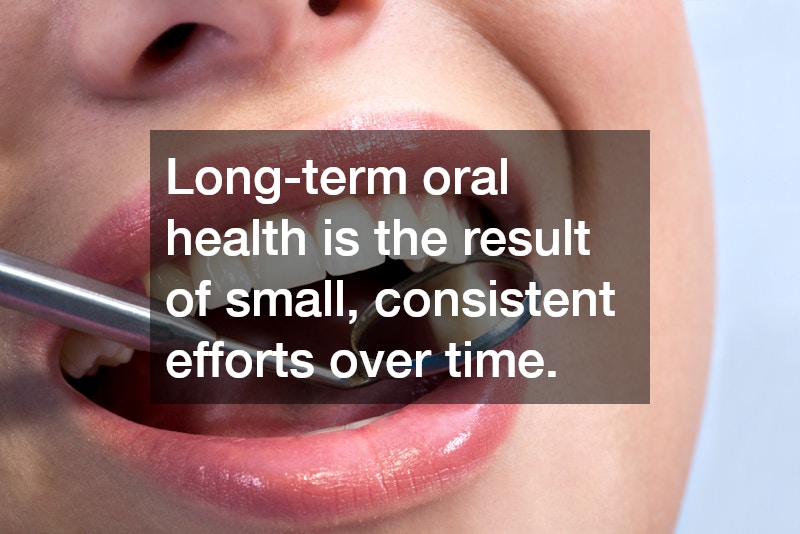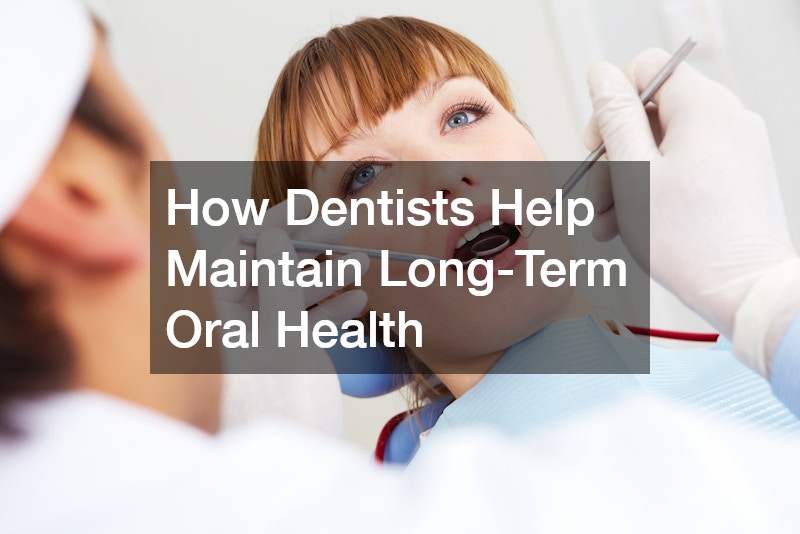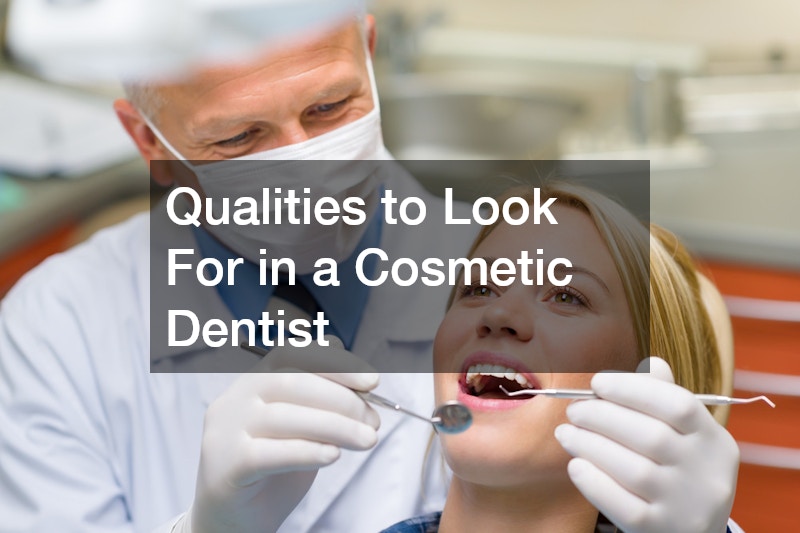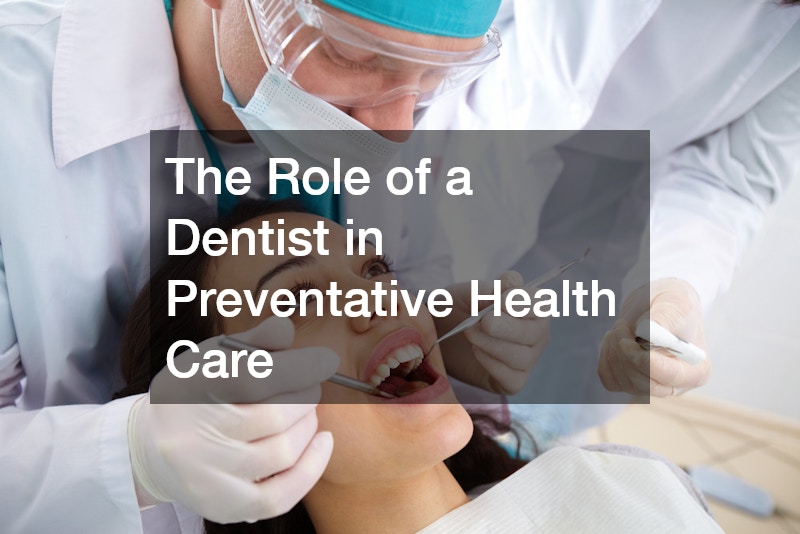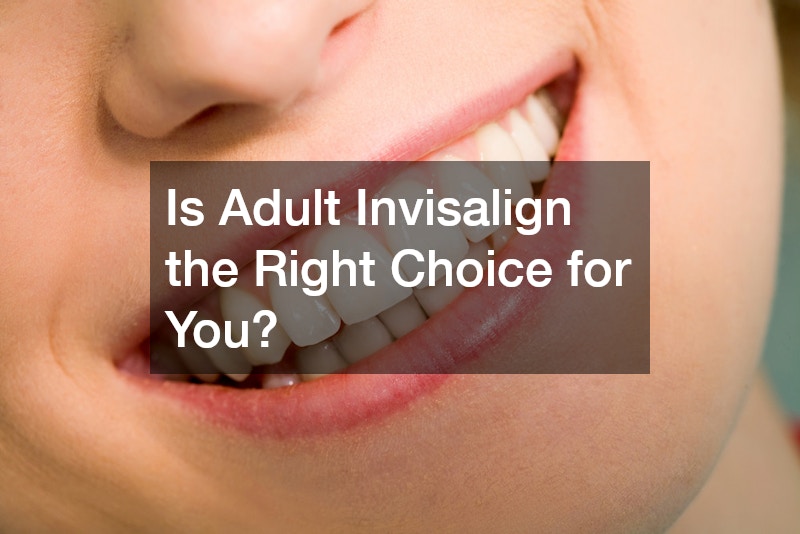Maintaining good oral health goes beyond daily brushing and flossing. While at-home care plays a vital role, regular professional input is essential for ensuring your teeth, gums and overall oral structures stay healthy over time. Dentists are trained to detect issues early, provide tailored care plans and help individuals of all ages achieve lasting dental wellness.
This blog explores how dental professionals contribute to long-term oral health, the importance of preventive care and what you can do to support the process between visits.
Prevention & Early Detection
One of the most valuable services dental professionals provide is early detection. Many oral health problems, such as cavities, gum disease and even oral cancer, begin silently without noticeable symptoms.
By attending regular check-ups, patients can benefit from expert screening techniques that detect issues in their earliest stages, when they are most treatable.
Preventive services such as professional cleaning, fluoride treatments and sealants also reduce the likelihood of developing more serious conditions later on. These preventative efforts can help avoid tooth decay, enamel wear and bacteria build-up, all of which are common contributors to poor oral health.
Dental practitioners also offer advice based on individual risk factors, including diet, habits, medical conditions and genetics. This personalised approach ensures that patients receive relevant guidance suited to their specific circumstances.
Oral Hygiene Education & Advice
A significant aspect of long-term care lies in educating patients. While many people understand the basics of oral hygiene, professional insight helps clarify misconceptions and introduces better practices. Dental teams can explain the right brushing technique, recommend suitable oral care products and correct mistakes that may otherwise go unnoticed.
For example, overbrushing or using the wrong type of toothbrush can lead to enamel erosion and gum irritation. A brief conversation during a check-up can prevent these issues entirely. Oral health education also extends to areas such as smoking cessation, nutrition and hydration — all of which influence your dental wellbeing.
Families with children especially benefit from early education, where consistent guidance on habits and hygiene helps set up a foundation for lifelong oral care. Ensuring children understand the importance of dental visits from an early age also helps reduce anxiety around treatment.
Restorative Treatments & Long-Term Planning
Even with the best at-home care, restorative treatments may sometimes be necessary. Fillings, crowns and root canals address damage or decay, preventing further deterioration and preserving the function of natural teeth. Long-term oral health means keeping as many natural teeth as possible in good condition.
Dental professionals develop care plans to restore health and function when needed, with long-term goals in mind. Rather than focusing solely on fixing one problem, they consider the overall picture — including bite alignment, jaw movement and neighbouring teeth.
Planning for the future also includes monitoring wisdom teeth, assessing orthodontic needs and maintaining dental work such as implants or bridges. Without regular follow-up and maintenance, even high-quality dental restorations can fail prematurely. Dentists ensure that every aspect of your oral health is part of a broader strategy for lasting results.
Gum Health & Systemic Conditions
Gum disease is a common yet often overlooked cause of tooth loss in adults. Early symptoms like bleeding, swelling or discomfort may be ignored until the condition becomes more severe. Dental professionals are trained to recognise these signs and provide treatment before irreversible damage occurs.
Gum health has been linked to systemic conditions such as diabetes, cardiovascular disease and even respiratory illness. This connection makes dental visits important not only for oral health but also for general well-being. Ongoing gum care, including deep cleaning and periodontal support, can significantly improve overall health outcomes.
With regular check-ups, patients with chronic health conditions receive coordinated care that considers both their medical and dental needs. This holistic approach ensures better long-term outcomes and minimises complications from untreated oral infections.
Collaboration Between Patients & Professionals
The most successful outcomes occur when there is clear communication and shared responsibility between the patient and provider. Regular appointments, honest conversations about habits and proactive treatment planning create a strong foundation for lasting oral health.
Patients who understand the value of dental care and take active steps to support their providers’ recommendations are more likely to enjoy better outcomes. It is not just about having healthy teeth now, but about preserving that health for decades to come.
While technology and treatment methods have evolved, the fundamentals of preventive care, early intervention and education remain consistent pillars in dental health. Skilled professionals continue to be central in delivering these services with care, expertise and personalised attention.
Long-term oral health is the result of small, consistent efforts over time. It begins with daily hygiene routines but relies heavily on the expertise of trained professionals who provide essential guidance, treatment and monitoring.
Dentists are more than just problem-solvers — they are partners in maintaining lifelong wellness. Their ability to identify issues early, offer personalised advice and implement restorative or cosmetic care ensures that patients can enjoy strong, healthy smiles well into the future.
Building and maintaining good habits, attending regular appointments and being proactive about your oral wellbeing create the best possible outcomes. With the support of trusted dental professionals, individuals can take control of their dental health and experience the lasting benefits of a confident, pain-free smile.
